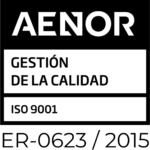
The obligation to identify shareholders in the dissolution document of a limited liability company in Spain
The Resolution of September 26, 2023, issued by the Directorate General of Legal Security and Public Faith of Spain (DGSJFP), published in the Official Gazette on November 1, 2023, establishes that, for the registration of the liquidation and dissolution of a Limited Liability Company (LLC), it is always mandatory to identify the shareholders in the dissolution document, even if the liquidation share amounts to zero due to the absence of assets or equity to be distributed among them, as both assets and subsequent liabilities will be distributed in proportion to each shareholder’s stake in the liquidation.
The competent Registrar refused to register a deed of liquidation and dissolution of an LLC, among other reasons, for the failure to identify the shareholders, thereby violating Article 395 of the Companies Act (“LSC”) and Articles 38 and 247 of the Commercial Registry Regulation (“RRM”).
The notary who authorized the deed appealed administratively, arguing the following: (i) that, as indicated in the balance sheet, the company had no assets or equity to liquidate, so if there is nothing to assign, it is not necessary to identify the shareholders; (ii) regarding liability for subsequent liabilities, shareholders are liable up to the limit of their liquidation share; and furthermore (iii) creditors have no recourse against shareholders but only against liquidators or administrators.
The DGSJFP rejects the appeal, specifying that the legal regulation responds to a logic not linked to the existence of distributable profits, and that the need to identify shareholders exists even when the liquidation share is zero at that time due to the absence of distributable net profit. The identification of shareholders, therefore, is not conditional on the existence of distributable profit but on the existence of a liquidation share, which always exists because, except for specially provided statutory provisions, it is equivalent to each shareholder’s proportion in the share capital (Article 392.1 of the LSC).
Furthermore, the liquidation share should not be confused with the allocation of assets and expresses the abstract rights of each shareholder in the distributable profit, which may or may not exist. Still, it is evident that the position of each shareholder must be perfectly determined, either by reference to their participation in the share capital or as provided in the bylaws.
In conclusion, regardless of whether there is a current allocation of assets to each shareholder or not, the law (particularly under Articles 398.1 and 399.1 of the LSC) requires that each shareholder and their corresponding abstract participation in the distributable profit be indicated.
© La presente información es propiedad de Escura, abogados y economistas, quedando prohibida su reproducción sin permiso expreso.














